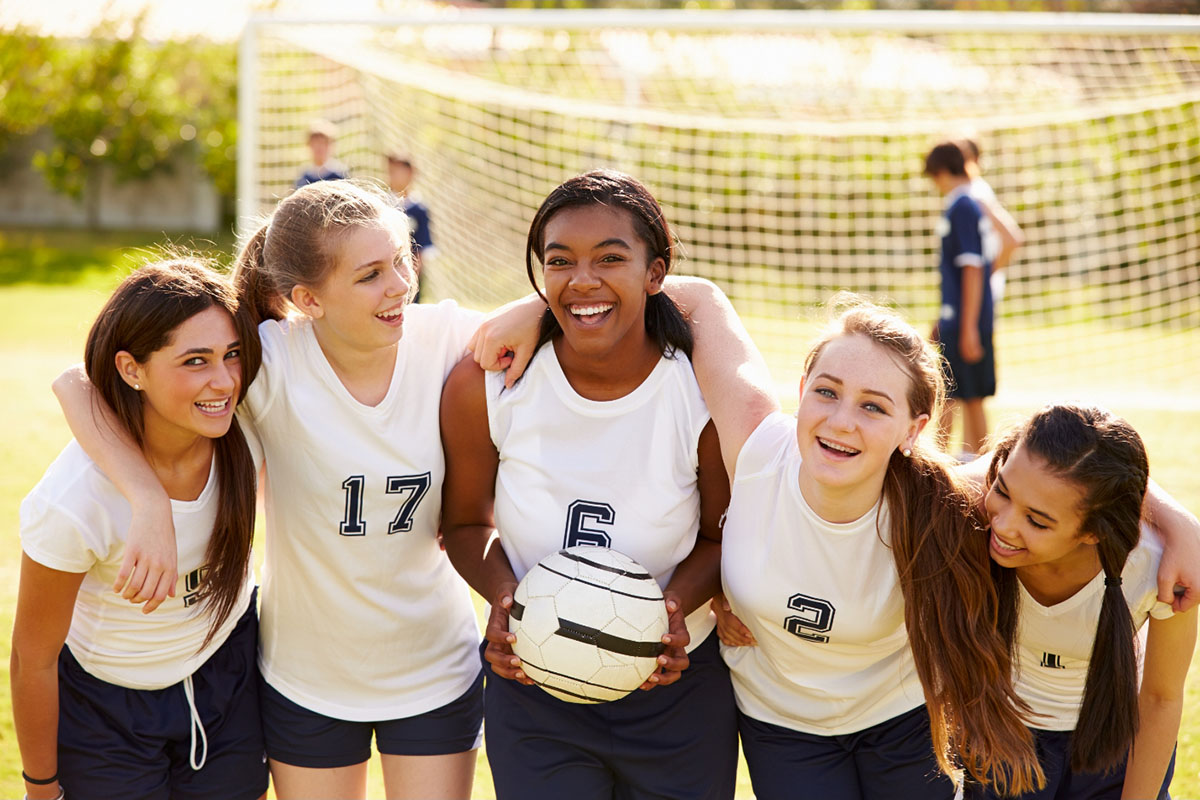Physical Education Classes and Sports Clubs for Girls in Schools
February 11by Monica Islam
“Ammu, will you sign this parental consent form for me to join the school football club?” asked Faatiha, my 10-year old niece to her mother. Faatiha studies at Bangladesh International Tutorial, a prominent private English-medium school in Gulshan, the heart of Bangladesh. The school has been operational since 1983 and therefore, it has a history of excellence in education. This question from Faatiha intrigued and pleased us all, as it demonstrates the school’s mature understanding of the fact that sports is instrumental in developing our girls, both physically and mentally. This question also encouraged me to write about sports and development from the perspective of young school girls in Bangladesh.
I learnt of a similar approach in Lakehead Grammar School, which is again an English-medium Islamic school in Gulshan, where young girls had the liberty to play cricket in their Physical Education class and not just in after-school clubs. You would perhaps imagine that a religious (Islamic) school will frown upon girls taking up sports, but – as my experience proved – this is not the case. Religious schools too have understood the impact and significance of sports for the development of our young girls, our starlets.
As I researched more about these play settings, I came across a report (2009) which likened girls’ access to sports as not just play but more of survival. This is because usually, girls are made to play and engage with dolls, sewing instruments and cooking pots so that they can grow up to be “obedient wives” only, not strong-willed, thinking and positive marriage partners or role-models, with healthy bodies. Furthermore, the report revealed that a staggering 36 per cent of women in Bangladesh believed that “wife-beating is justified”!
According to the report, in more modern environs, girls are allowed to play traditional games, such as kabaddi. As a result, a range of games, such as football, cricket and basketball, is not available to them. These games are considered too masculine, especially with regard to the attire that some of these games require. Even in co-educational schools, it is found that girls are too abashed to engage in sports, and due to a lack of female trainers who will involve young girls in play, this phenomenon is even more pronounced. In some schools, girls are confined to play only once a year during the Annual Sports Competitions. Sometimes, parents hesitate to sign the consent forms to allow their daughters to play. The more educated they are, the less hesitant they appear. These are some of the challenges that schools grapple with when it comes to sports and development for young girls.
Giving a whiff of fresh air, the report went on to showcase the work of an organization named Promoting Human Rights and Education in Bangladesh (PHREB), which collaborated with schools to create opportunities for young girls to get involved in sports. Since 2009, sports in schools have seemed to come a long way in an inspiring manner. For example, schools specializing in imparting karate education have sprouted up in Bangladesh. The organization named Nari Uddug Kendra (NUK) is said to have trained about 60,000 young girls from all over Bangladesh. Another English-medium school of international repute in Gulshan, Sydney International School, introduces an innovative sport for girls after-school—taekwondo! In addition to the solutions provided by schools as mentioned in the introductory passages of this article, these are some of the other tried-and-tested methods instituted by the private sector and NGOs to engage our girls in sports and consequently, to develop Bangladesh.
As for Faatiha, she asserts she will join the basketball club in her school when she gets a little bit older.






